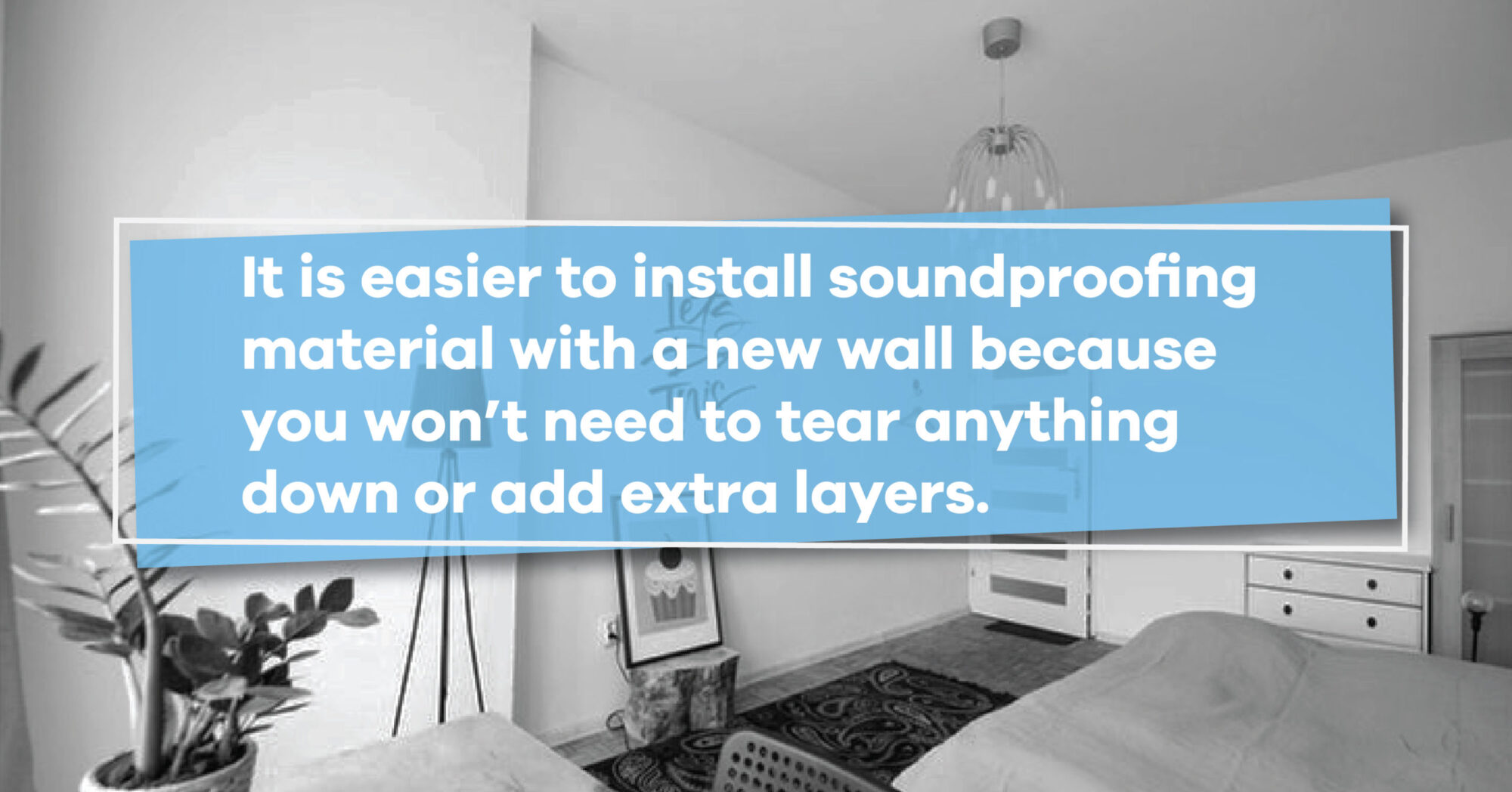Chapter 4: Installation
How Do You Install New Wall Soundproofing?
New walls are a good place to start with soundproofing because they are like a blank canvas. It is easier to install soundproofing material with a new wall because you won’t need to tear anything down or add extra layers.

Best Method for New Wall Soundproofing
The best method for soundproofing a new wall is the same for any wall — add mass. Also, consider you’ll need to soundproof both sides of the wall for maximum soundproofing. Using IsoTrax®, follow these steps for the first side of the wall:
1. Install Quiet Barrier® HD on the studs with 1 ¼-inch roofing nails.
2. Seal the seams of the Quiet Barrier® with Quiet Barrier® Tape.
3. Install ?-inch Type X gypsum board with 15/8-inch coarse thread drywall screws.
4. Place screws with eight to 12 inches of space between them.
5. Leave a ¼-inch gap between the gypsum board layers and adjoining surfaces.
6. Install the Quiet Batt® between the studs
On the other side of the wall, you’ll need to:
1. Install the IsoTrax® Soundproofing System on the studs.
2. Install ?-inch Type X gypsum board on the IsoTrax® with 1 ¼-inch fine thread drywall screws.
3. Place screws 12 inches apart.
4. Leave a ¼-inch gap between layers.
5. Fill the gap with OSI Pro-Series SC-175 Acoustical Sound Sealant.
6. Finish the gypsum board.
With IsoTrax® in your new walls, you’ll get to enjoy soundproofing peace for years to come.
Soundproofing Interior Walls in New Construction on a Budget
If you’re on a budget, you might opt to soundproof new walls using fewer materials. For example, you could leave out Quiet Barrier®, but still use Quiet Batt® and IsoTrax®. This would help reduce noise shared between rooms or noise in the room.
For decent soundproofing, you could leave out IsoTrax® and use Quiet Barrier® and Quiet Batt®. This method will help reduce minimal noise between rooms, such as people talking or low-volume music.
Here are some more tips to consider when soundproofing your new room:
- Place bookshelves filled with books against shared walls for sound insulation.
- Fill empty spaces with soft furnishings to prevent echo.
- Hang heavy drapes at the windows.
- Lay carpet.
- Decorate with acoustic panels.


